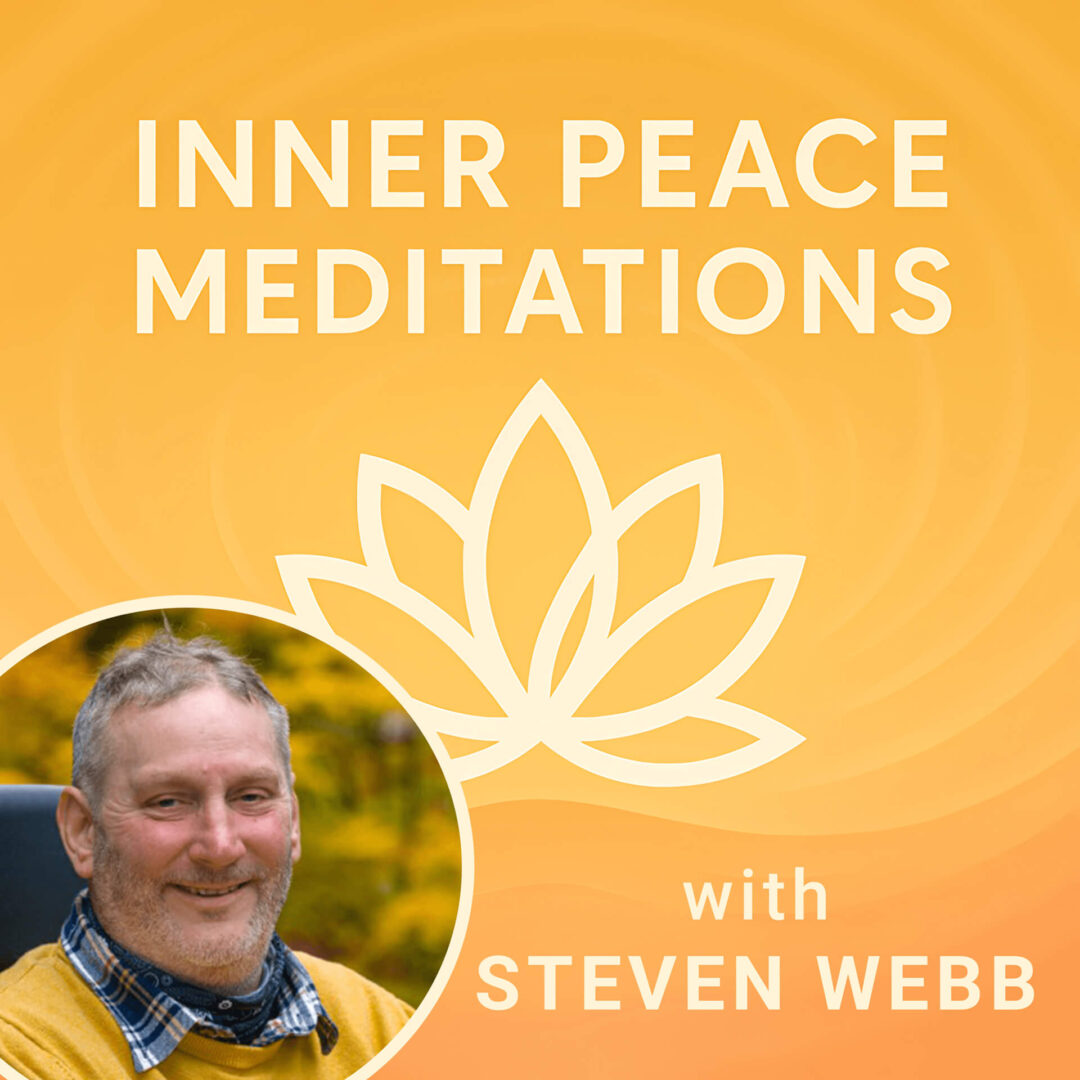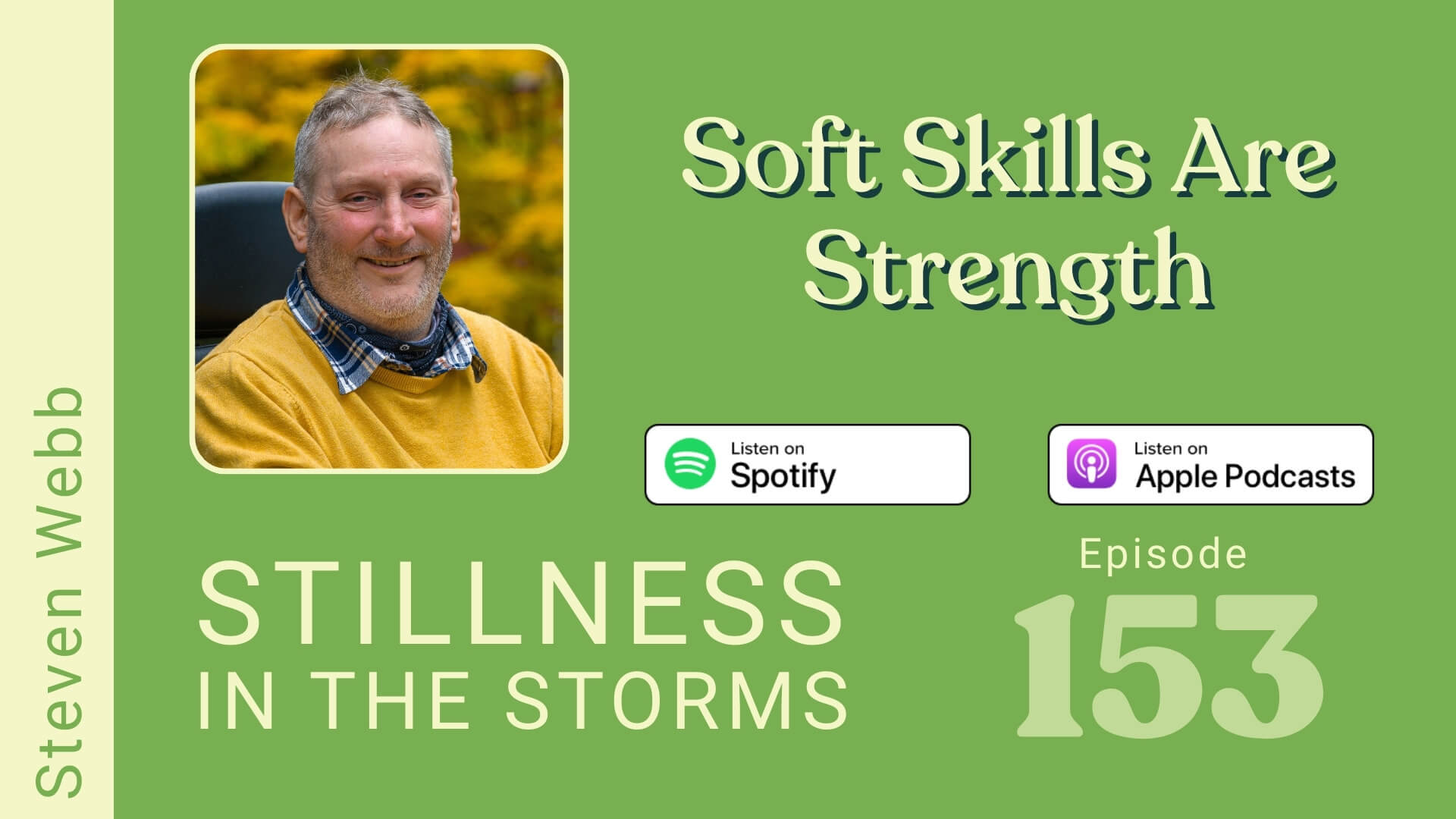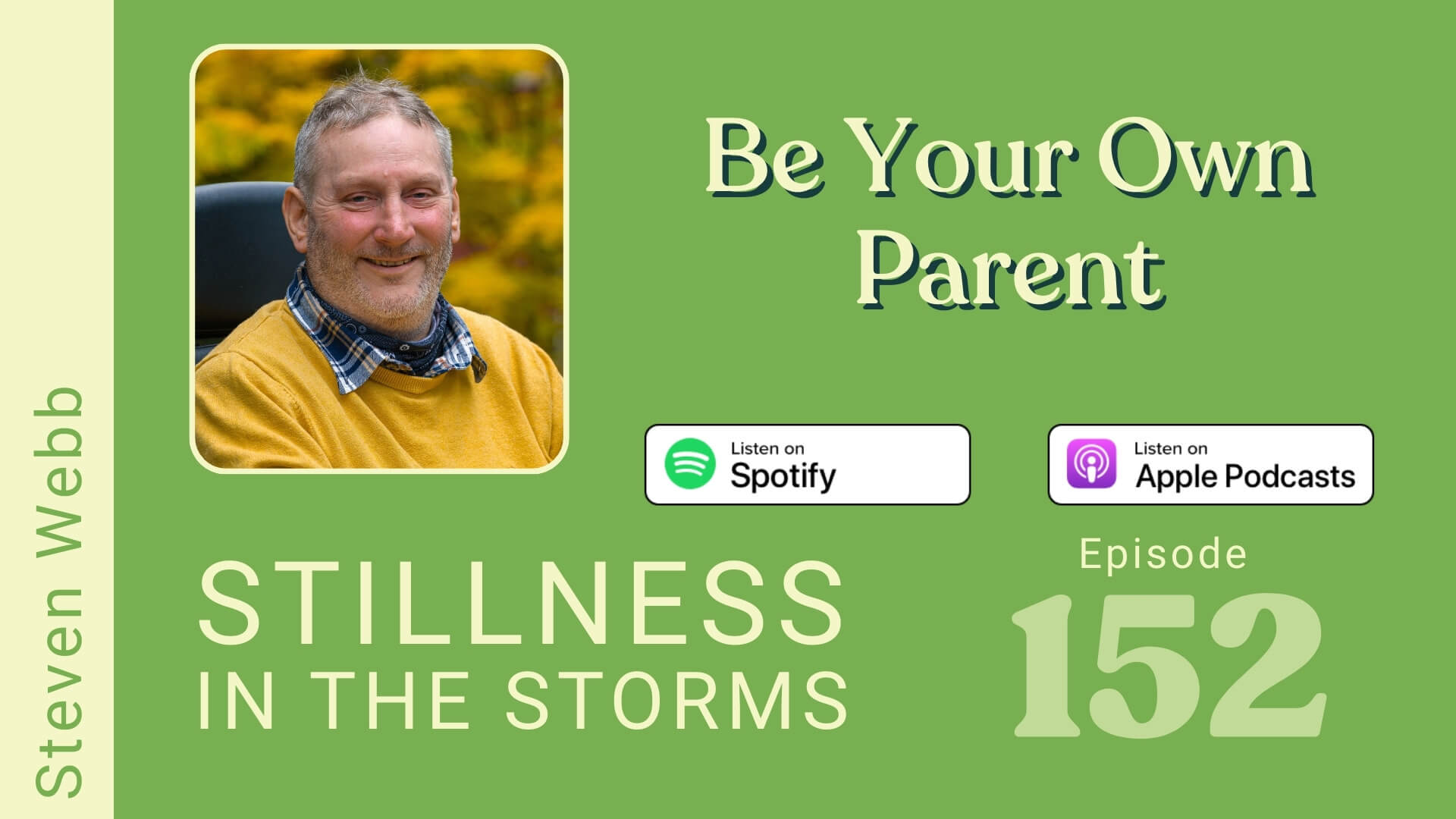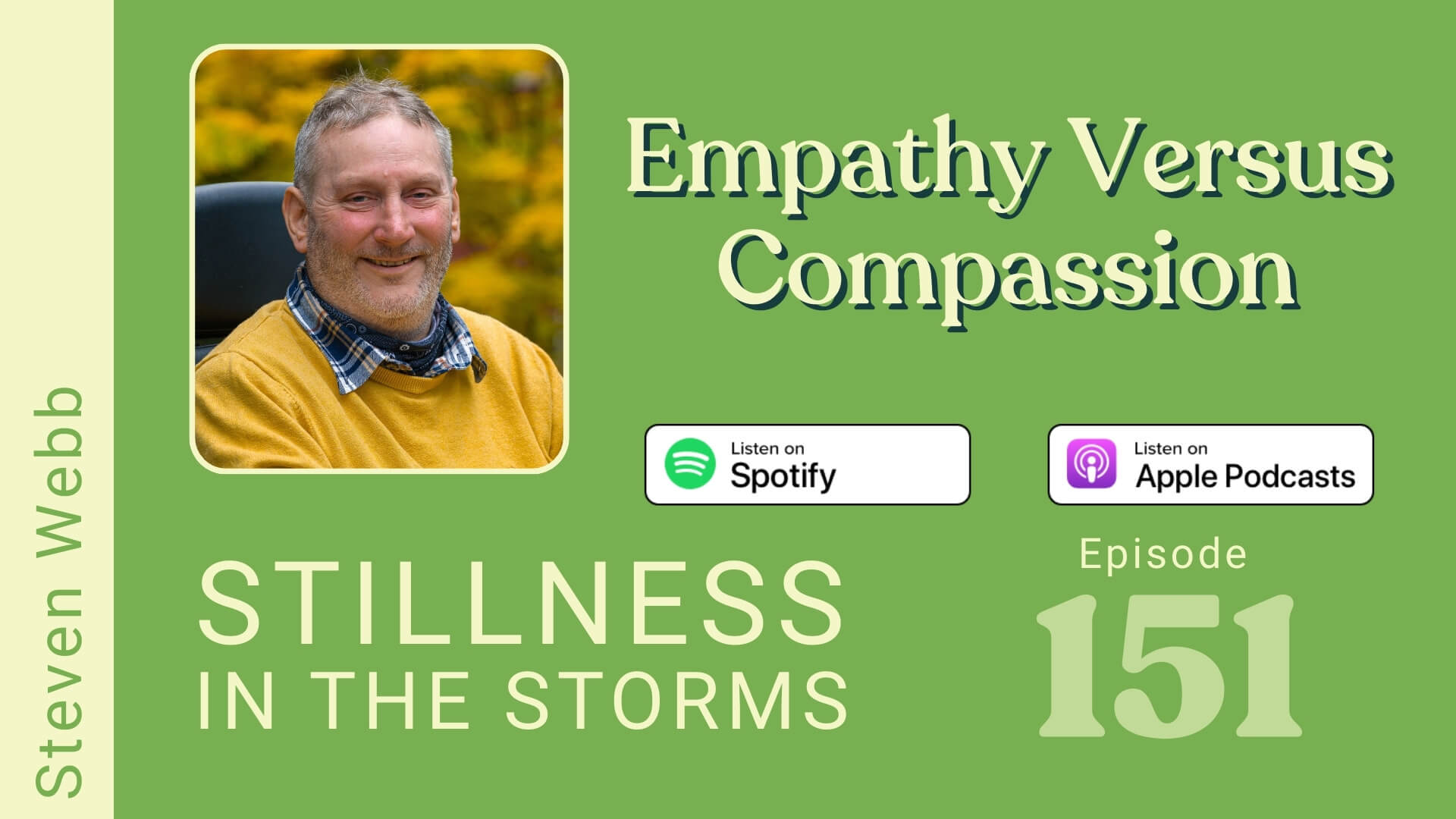The Truth About Inner Peace: 5 Myths Debunked
Links to Steven Webb’s podcast and how you can support his work.
- Donate paypal.me/stevenwebb or Coffee stevenwebb.uk
- Steven’s courses, podcasts and links: stevenwebb.uk
Today, we’re diving into the topic of inner peace and what it truly means. I share my personal journey of finding peace, especially after a life-changing injury that left me paralyzed. It’s not about always feeling good or avoiding pain; instead, it’s about recognizing that peace is always there beneath the chaos of life. I also unpack five common myths about inner peace that I used to believe, which held me back from truly understanding it. By the end of this episode, I hope to help you see how to tap into that inner calm, even when life gets tough. If you’re curious to learn more, check out my website at https://stevenwebb.uk.
In this episode of Stillness in the Storms, host Steven Webb shares his personal journey of finding inner peace after being paralyzed from the neck down. He offers practical wisdom and debunks common myths about what it means to be at peace, revealing that it’s a state that is always accessible, even in the midst of life’s greatest challenges.
Benefits of Listening:
- Learn how to find inner peace, regardless of your external circumstances.
- Discover why you don’t need to control your thoughts to be at peace.
- Understand that inner peace is not a permanent state, but a practice.
- Learn how to be fully present and engaged with life, without clinging or grasping.
- Be inspired by Stephen’s story of resilience and hope.
Key Quotes:
- “We are at peace when we’re not suffering, or when we’re doing something we enjoy.”
- “Inner peace is always there. It’s always present. A peaceful, quiet world is always present, even in the most dire circumstances.”
- “You cannot wait until life calms down. You won’t be able to have peace once life’s sorted.”
- “Peace means being fully present. It means without clinging and without that grasping.”
The Five Myths of Inner Peace:
- Inner peace means never feeling pain or discomfort.
- You must control your thoughts to be at peace.
- You find peace once life calms down.
- Inner peace is a permanent state.
- Peace means detachment from life.
Morning Bloom: A Powerful Meditation to Open the Day
Stevens new course: Finding Peace in Everyday Life (you choose how much to pay)
- Support Stevens work and links to other podcasts: stevenwebb.uk
- Donate paypal.me/stevenwebb or Buy Steven a coffee
Welcome to the “Inner Peace Meditations” podcast. In this episode, titled “Morning Bloom: A Powerful Meditation to Open the Day” we offer a gentle guided meditation to help you begin your day with intention and tranquility.
Drawing inspiration from the Zen symbolism of the lotus flower, this meditation encourages you to rise from the “mud” of sleep and worries, and open to the day with grace and self-acceptance. Just as the lotus blooms in murky water, you are guided to find your inner strength and beauty, regardless of the challenges the day may hold. This practice is a reminder that you don’t need perfect conditions to shine; you can bloom exactly where you are.
This meditation is for you if you:
- Often wake up feeling anxious or overwhelmed by your to-do list.
- Are looking for a peaceful and positive way to start your morning.
- Wish to cultivate a greater sense of self-acceptance and inner calm.
- Struggle with perfectionism and the feeling that you are not “enough.”
- Are new to meditation and want a simple, guided practice.
- Want to connect more deeply with your body and breath.
This meditation will help you to:
- Gently awaken your body and mind.
- Set a positive and calm tone for the rest of your day.
- Release tension and worry.
- Cultivate feelings of gratitude and self-compassion.
- Find strength and resilience in the face of life’s challenges.
- Embrace the present moment with a sense of peace and openness.
The Garden of Your Heart: A Meditation to Uncover Your Inner Strengths

Links to Steven Webb’s podcast and how you can support his work.
- Donate paypal.me/stevenwebb
- Steven’s courses, podcasts and links: stevenwebb.uk
Guided Meditation: The Garden of Your Heart
In a world that often rewards being loud and tough, it’s easy to mistake our quiet, gentle qualities for weaknesses. We might overlook our own capacity for kindness, patience, and empathy, believing they don’t count in the grand scheme of things.
But what if these are not weaknesses at all? What if they are our deepest, most resilient strengths?
This guided meditation invites you on a gentle journey into the garden of your heart. Here, we will walk through a peaceful inner landscape where your unique strengths are discovered not as abstract ideas, but as living parts of your very nature, a resilient tree of patience, a clear pool of empathy, a soft moss of kindness. It is a time to simply recognise, honour, and appreciate the quiet power you already hold within.
To get the most from this practice, find a quiet space where you can sit comfortably without interruption for the next 15 minutes.
Explore This Topic Deeper in the Podcast:
This meditation was inspired by a recent conversation on my podcast, Stillness in the Storms. If you’d like to explore the idea of our soft skills as our greatest assets in more detail, I invite you to listen to the companion episode: “In a Hard World, Your Softest Skills Are Your Strongest Asset.”
You can find the episode here: In a Hard World, Your Softest Skills Are Your Strongest Asset
Thank you for sharing this space and time with me. May this practice remind you of the incredible strength and beauty you carry within.
To connect further, please visit https://stevenwebb.uk.
In a Hard World, Your Softest Skills Are Your Strongest Asset

Links to Steven Webb’s podcast and how you can support his work.
- Donate paypal.me/stevenwebb or Coffee stevenwebb.uk
- Steven’s courses, podcasts and links: stevenwebb.uk
In a Hard World, Your Softest Skills Are Your Strongest Asset
“We cannot change the cards we are dealt, just how we play the hand.” – Randy Pausch
In a world that often feels chaotic and overwhelming, it’s easy to feel like we’re holding a losing hand. We’re constantly handed challenges we didn’t ask for, from personal struggles to global uncertainties. But what if our greatest strength isn’t in getting new cards, but in learning how to play the ones we already have?
In this episode, I explore the profound power of our ‘soft skills’ – the very human qualities that are often overlooked but are more crucial now than ever. We’ll discuss how empathy, patience, kindness, and self-awareness are not weaknesses, but incredible assets that allow us to navigate life’s toughest moments with grace and strength.
Join me as we reframe our perspective, learning to see the immense value in our innate human goodness and discovering how to use these skills to not only survive the storms but to find stillness within them.
In this episode, you will learn:
- How to shift your focus from the cards you’re dealt to how you choose to play them.
- Why soft skills like empathy and kindness are essential tools for resilience.
- How to recognise and cultivate your own inner strengths, even when you feel powerless.
- A new perspective on navigating a world that seems to reward harshness over compassion.
Thank you for being here and for being part of the Stillness in the Storms community. Your presence makes a difference.
Resources & Connecting:
- Weekly Calm Newsletter & Blog: For more reflections, guided meditations, and updates, visit my website and sign up for my newsletter.
- Visit: stevenwebb.co.uk
- Leave a Review: If this episode resonated with you, please consider leaving a review on your favourite podcast platform. It truly helps others find the show.
The Lantern Path: Deep Sleep Journey

The Lantern Path: Deep Sleep Journey
In this deeply relaxing Steven Webb sleep meditation, you will be gently guided from a busy mind into a safe and peaceful deep sleep. This 40-minute session begins with simple tips for preparing your room, followed by a full-body relaxation that helps you release tension, sink into the bed, and let your body rest so your mind can follow.
Once your body feels heavy and deeply calm, Steven takes you on The Lantern Path, an unusual and soothing bedtime story that leads you through a quiet village, across a wooden bridge, and up a gentle hill lit by warm lanterns. The journey is slow, peaceful, and designed to quiet the mind so you can drift naturally into deep, restorative sleep.
There is no wake-up at the end. The gentle background music fades to silence, allowing you to stay asleep for the night.
Perfect for anyone struggling to unwind, this guided sleep meditation will help you feel safe, relaxed, and ready for your best night’s rest.
How to Be Your Own Loving Parent

Links to Steven Webb’s podcast and how you can support his work.
- Donate paypal.me/stevenwebb or Coffee stevenwebb.uk
- Steven’s courses, podcasts and links: stevenwebb.uk
Episode Description
Have you ever felt adrift, wishing you had a wise and unconditionally loving guide to help you navigate life’s storms? What if that guide was already inside you, waiting to be discovered?
In this episode of Stillness in the Storms, Steven explores the transformative concept of “self-parenting,” inspired by the work of Gabor Maté. This isn’t about harsh discipline or re-living your childhood; it’s about learning to trade your harsh inner critic for a compassionate, wise, and loving inner parent.
Discover how to identify the areas in your life—from procrastination and setting boundaries to health and self-talk—where this gentle inner guidance can bring more peace, accountability, and profound kindness. This episode is your invitation to cultivate the most supportive and empowering relationship you will ever have: the one with yourself.
In This Episode, You Will Learn:
- What it truly means to “parent yourself” and why it’s a powerful tool for personal growth and mental wellness.
- How to recognize the everyday moments where a kind, internal parent can help you make better choices (like getting out the door on time!).
- The crucial difference between self-criticism, which stifles growth, and self-acceptance, which creates the space for positive change.
- Practical areas where you can apply self-parenting today: managing your time, making healthier choices, and balancing work, life, and play.
- The most important role of your inner parent: offering yourself the unconditional love and reassurance you deserve, especially when you’re struggling.
Resources Mentioned
- Support the Podcast & Find More from Steven: Discover courses, meditations, and ways to support the show at https://stevenwebb.uk.
- Companion Meditations: Listen to guided meditations that accompany the podcast episodes on the Inner Peace Meditations podcast.
- Upcoming Course: Stay tuned for Steven’s new 7-day audio course, “How to Find Peace in Busy Times.”
The Embrace of Your Inner Parent

Links to Steven Webb’s podcast and how you can support his work.
- Donate paypal.me/stevenwebb
- Steven’s podcasts and links: stevenwebb.uk
Meditation Description
Have you ever wished for a voice of unconditional love and support, especially during difficult times? This guided meditation is your invitation to connect with that voice within.
As a companion to the Stillness in the Storms episode, “The Parent You Never Knew You Had,” this practice will help you create a safe inner space to meet and embrace the wise, compassionate, and reassuring parent that resides within you. Allow yourself to move from self-criticism to deep self-acceptance and feel the profound comfort of coming home to yourself.
Who is This Meditation For?
This meditation is for you if you:
- Struggle with a loud or persistent inner critic.
- Are seeking clarity, direction, or gentle guidance in your life.
- Wish to build self-compassion and improve your sense of self-worth.
- Feel overwhelmed and are in need of comfort, safety, and reassurance.
- Want to cultivate a more loving and supportive relationship with yourself.
Benefits of This Meditation
By practicing this meditation, you can:
- Reduce Self-Judgment and Anxiety: Quiet the harsh voice of your inner critic and feel a greater sense of calm.
- Cultivate Deep Self-Compassion: Learn to treat yourself with the kindness and understanding you would offer a dear friend.
- Increase Feelings of Safety and Security: Create an inner sanctuary where you feel unconditionally loved and accepted.
- Access Your Inner Wisdom: Connect with your intuition to make decisions that are more aligned with your well-being.
- Support Emotional Healing: Gently nurture parts of yourself that may have felt neglected or criticized in the past.
Out Of Your Head, into Peace

Links to Steven Webb’s podcast and how you can support his work.
- Donate paypal.me/stevenwebb
- Steven’s courses, podcasts and links: stevenwebb.uk
Out of Your Head, Into Peace is a simple 3-minute meditation to help you gently drop out of mental chatter and reconnect with the quiet calm of your body and breath.
Whether you’re overwhelmed, anxious, or simply need a moment of clarity, this short practice invites you to let go of control, soften your thinking, and return to the wisdom of your heart.
This track is free from ads thanks to the generous support of listeners like you. If you’d like to support the podcast or listen to more meditations, you’ll find links below. Thank you for being here.
Steven
Empathy vs. Compassion: What's the Real Difference?

Links to Steven Webb’s podcast and how you can support his work.
- Donate paypal.me/stevenwebb or Coffee stevenwebb.uk
- Steven’s courses, podcasts and links: stevenwebb.uk
Compassion is at the heart of our discussion today, so let’s dive right into it. We explore how compassion serves as a cosmic wink that connects us all, as Alan Watts puts it. This episode unpacks the differences between compassion, empathy, and judgment, and how understanding these can help us navigate our lives better. We’re all just players in this game called life, and recognizing each other’s struggles is key to becoming whole. Join me, Steven Webb, as we unravel what it really means to practice compassion in our daily interactions and why it matters more than ever.
Compassion is a fascinating topic, and in this episode, I dive deep into what it really means. I start by reflecting on Alan Watts’ idea that compassion is like a cosmic wink, a warm acknowledgment that we see each other as fellow players in this game of life. I also explore the thoughts of Ken Wilber, who suggests that true judgment comes from a place of compassion. This leads me to ponder the differences between judgment, empathy, and compassion. Judgment often comes with a personal lens, where we see the world through our own experiences, and this can lead to negative assessments of others. Empathy, on the other hand, lets us feel what others feel, but it can sometimes become self-centered, drawing us away from the person in need. Compassion, however, is about genuinely being present for someone without the need to turn the spotlight back onto ourselves. It’s about opening our hearts and really seeing others for who they are, not just for their struggles but as whole beings. Throughout this episode, I share personal stories and insights that highlight the importance of compassion in our lives, especially during tough times. I encourage listeners to practice small acts of kindness and to approach each interaction with an open heart, allowing us to become whole together.
Takeaways:
- Compassion is recognized as the cosmic wink acknowledging our shared human experience. It connects us all.
- Empathy and judgment differ significantly, where empathy often centers around our own feelings and experiences.
- True compassion requires us to open our hearts to others rather than projecting our own experiences onto them.
- To foster compassion, we need to embrace both our weaknesses and strengths, allowing us to become whole.
- Compassion is action-oriented, encouraging us to care for others without turning the focus back to ourselves.
- Practicing small acts of kindness daily can help cultivate a more compassionate mindset in our lives.
Quickly Back to Calm – A Gentle 3 Minute Reset

Links to Steven Webb’s podcast and how you can support his work.
- Donate paypal.me/stevenwebb
- Steven’s courses, podcasts and links: stevenwebb.uk
Back to Centre: A Gentle 3-Minute Reset is your pause button for the day. When life gets loud or the mind feels scattered, this short practice helps you come home to yourself—grounded, present, and calm.
In just three minutes, you’ll reconnect with the simplicity of your breath, the steadiness of your body, and the quiet space that always lives within you. No need to change anything. Just notice, allow, and soften.
This meditation is free from ads thanks to the kindness of listeners like you. If it helped you, consider sharing it or supporting the podcast through the links below.
With gratitude,
– Steven
